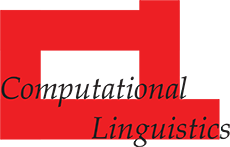Abstract
Grammars that expect words from the lexicon may be at odds with the transparent projection of syntactic and semantic scope relations of smaller units. We propose a morphosyntactic framework based on Combinatory Categorial Grammar that provides flexible constituency, flexible category consistency, and lexical projection of morphosyntactic properties and attachment to grammar in order to establish a morphemic grammar-lexicon. These mechanisms provide enough expressive power in the lexicon to formulate semantically transparent specifications without the necessity to confine structure forming to words and phrases. For instance, bound morphemes as lexical items can have phrasal scope or word scope, independent of their attachment characteristics but consistent with their semantics. The controls can be attuned in the lexicon to language-particular properties. The result is a transparent interface of inflectional morphology, syntax, and semantics. We present a computational system and show the application of the framework to English and Turkish.

